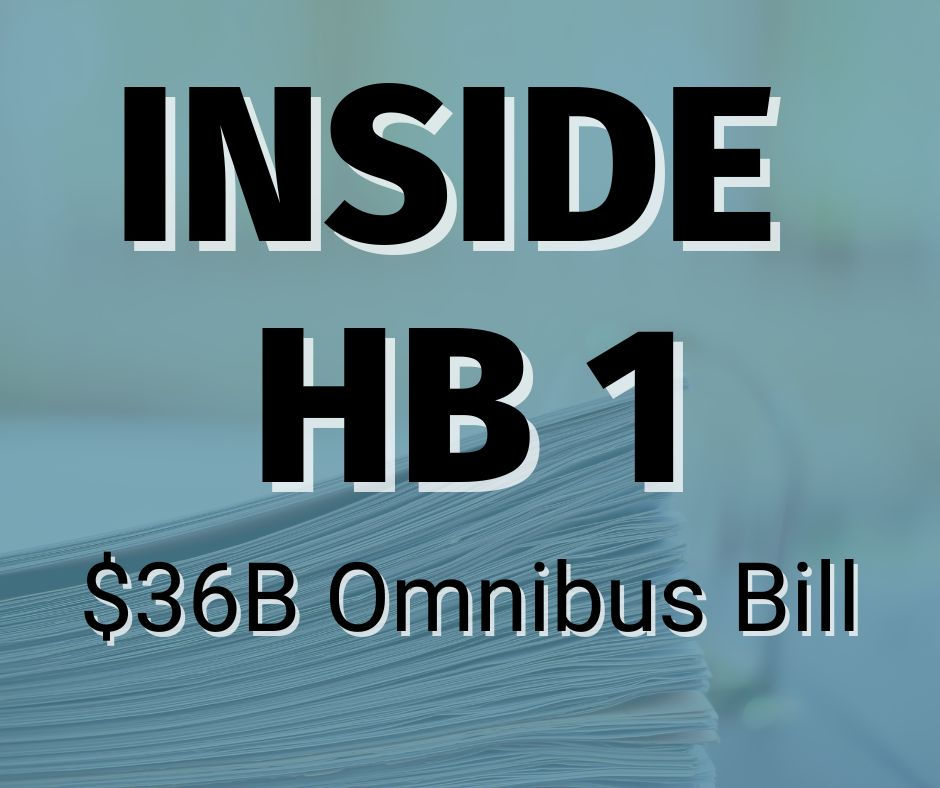HB 1605 "Digital Common Core"
- April Walsh
- Feb 18, 2024
- 3 min read
Updated: Nov 14, 2024
There are some positive components to the bill, but they are outweighed by the expanded authority of the commissioner and TEA and the uncertainty about how his programs will be funded. A sound principle of educational governance is to have an elected body overseeing the actions of administrators, whether this is in the school districts or the state agency. Currently, the commissioner is accountable to no one except Governor Abbott and this bill expands his unaccountable authority.
Commissioner/TEA Authority
While the bill does consolidate all of the various instructional materials procurements/acquisitions developed by Commissioner Morath over the past three years and established SBOE approval as the final step in the review process, the bill gives rule-making authority and decision-making to the commissioner/agency in multiple places. The SBOE should have the final authority over all rules and decisions in Chapter 31. (See sections 6, 12, 16, 23, 24, 28, 34, 39, 46, and 48 for examples of expanded commissioner/agency authority for rules and decisions.)
TEA: A Regulatory Agency or a Technical Assistance Organization?
The bill makes the state agency, by law the agency that regulates school districts and charter schools in Texas, a technical service provider. If TEA is the regulator, it should not be the technical service provider for schools. (See sections 24 and 38 for specific examples of TEA encroachment into technical assistance. There are other places in which TEA is allowed to get into decisions that are best made by teachers and school leaders who are responsible to elected school trustees in their communities.)
Why is TEA creating a C-SCOPE like curriculum?
This bill limits a school’s responsibility to have teachers develop teaching units and
lesson plans. TEA under Mike Morath, a former software developer, has become one of the largest procurers and developers of instructional materials, assessments, and management systems. With no accounting for how much money has been spent or the degree of usage in the schools over the past three years, this bill expands his authority and creates a structure to fund his unaccountable actions. (See sections 1, 2, 9, 11, and 16, just to identify a few in this bill. Consider all of the sections that give him authority to marshal OER materials and push them into schools.)
Why is Texas duplicating Louisiana programs?
What are “full subject tier one instructional material” and “partial subject tier one
instructional material” and what distinguishes them from other instructional materials? How many educators outside of Louisiana are familiar with these terms? (See sections 11, 18, and others for references to these terms.)
Open Education Resources are by design open and free. Why is the Commissioner buying OER, building a repository for these materials, and pushing them into schools?
Open educational resources (OER) are teaching, learning, and research materials
intentionally created and licensed to be free for the end user to own, share, and in most cases, modify. The term "OER" describes publicly accessible materials and resources for any user to use, re-mix, improve, and redistribute under some licenses. These are designed to reduce accessibility barriers by implementing best practices in teaching and to be adapted for local unique contexts. See the source for this at (See sections 16, 27, 28, 29, and on and on.)
Who benefits from this bill?
What are “other private education service providers”? Are they examples of preferred TEA vendors? What are some examples of these providers? This suggests that at the least, this bill is constructed to benefit Commissioner’s preferred service providers. (See Sections 25 and 38)
What is the rationale for a state approved list of required vocabulary words and at least one literary work that would be taught at every grade?
Does this creation of a common word list and literacy work list make it easier for the commissioner to create more state assessments? Push state testing down to K, first, and second grade over the vocabulary words and the common literary work?
Why is the SBOE review cycle being eliminated?
The cycle creates predictability for school leaders and trustees which is important for curriculum planning and for budgeting in school districts. When schools know what subjects are coming up for review, they can allocate their limited financial resources with greater fiscal responsibility. (See Section 21.)
Why is the SBOE authority over certain aspects of this eliminated or not established?
Even when the commissioner is given an authority such as establishing an OER
repository, the final approval should come from an elected body, not an appointed administrator. (See Sections 18, 28, and 34, for example.)
At a time when school administration is growing, why does the Legislature require more unnecessary reports?
What is the value of the annual report from every school district to TEA, with a specific requirement to include costs? Is this another way for Commissioner Morath to pressure school leaders into using his preferred instructional materials vendors such as Amplify? (See Section 41)




